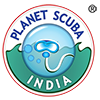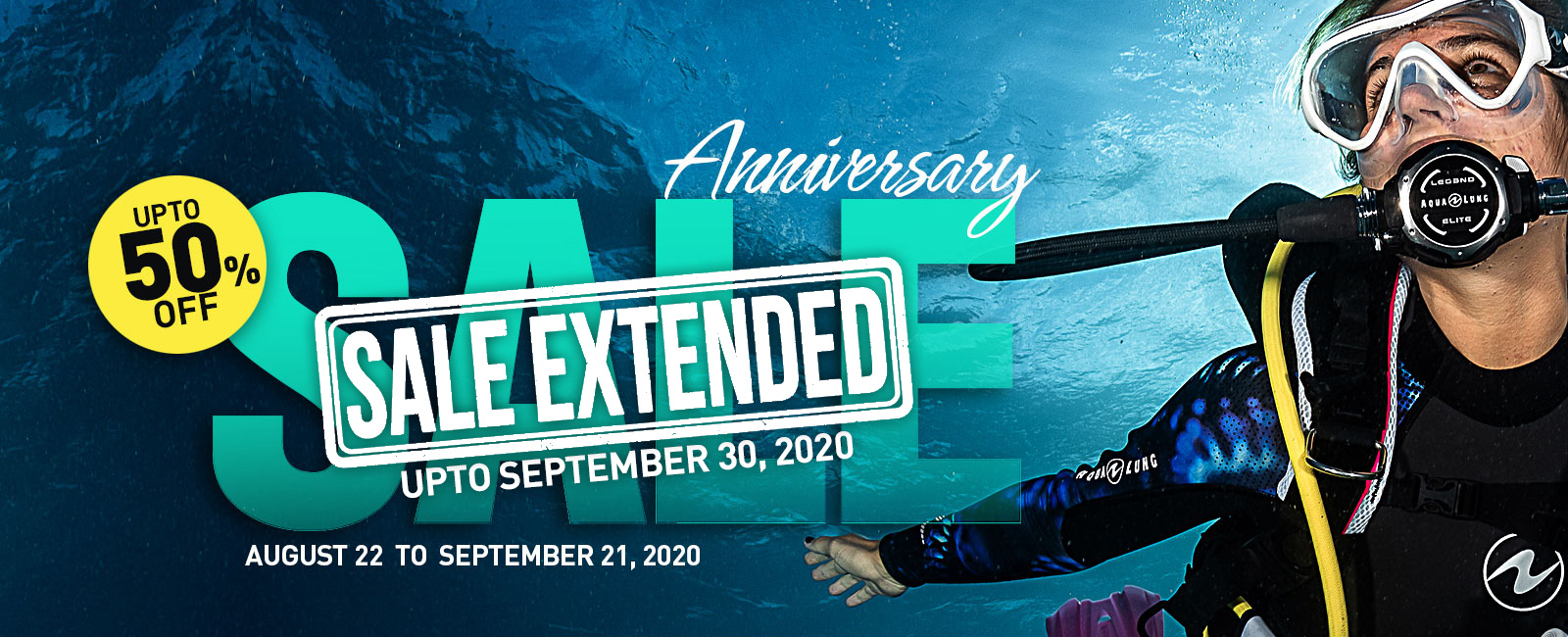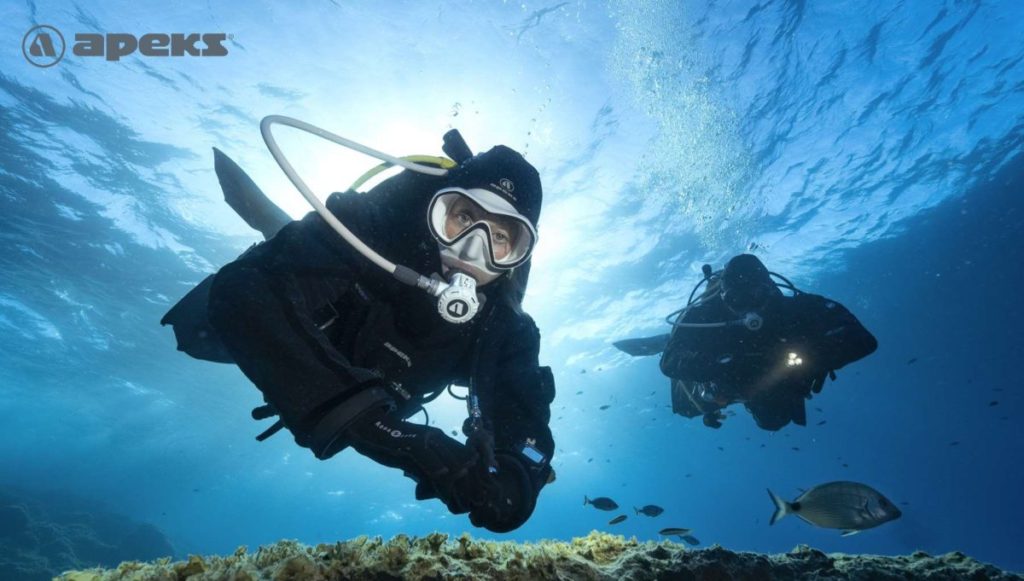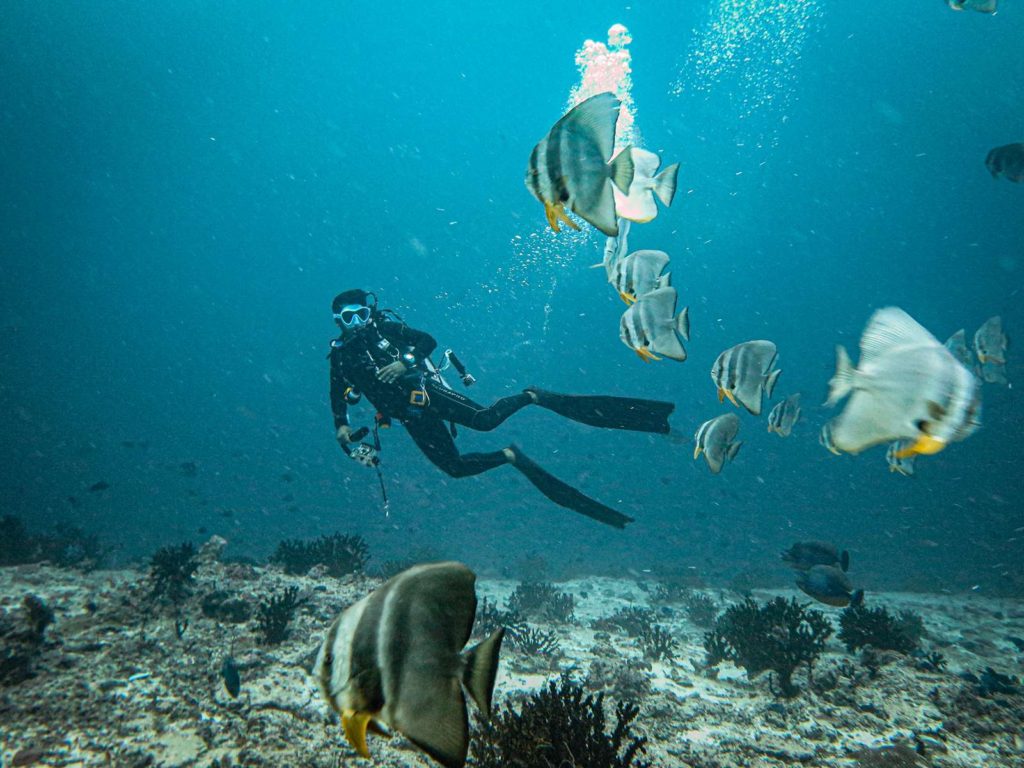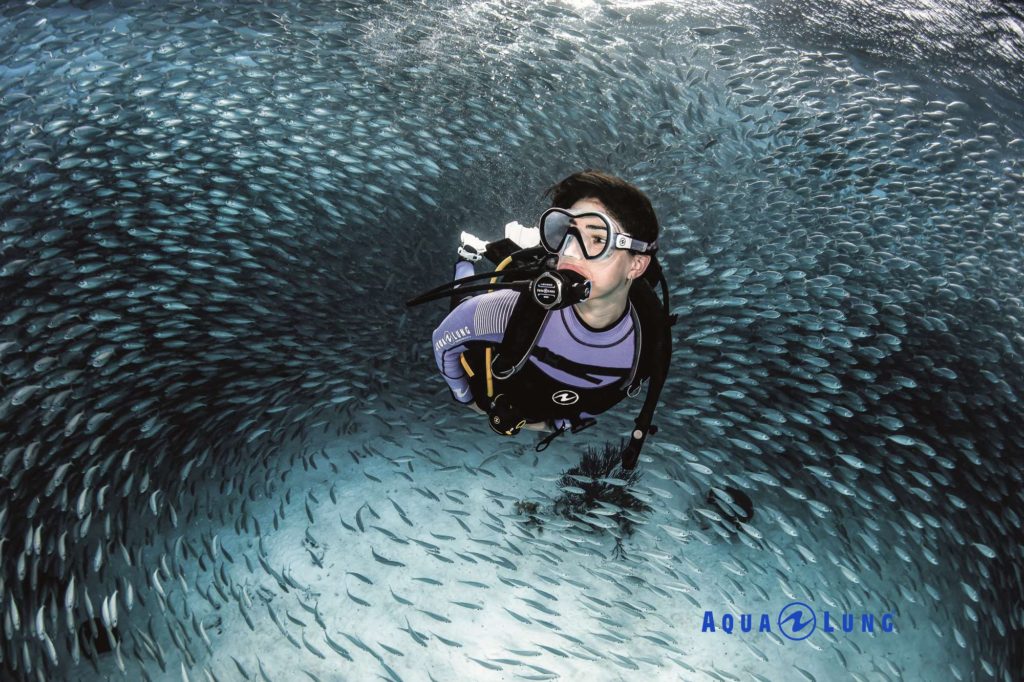When most people think about scuba diving, they picture vibrant coral reefs, sea turtles and fascinating marine life. And though, these are definite reasons to go scuba diving, they are not all that diving has to offer. Did you know that scuba diving has a multitude of positive health benefits? Yes, we are talking of scuba diving for Fit India! Some of the scuba diving health benefits are derived from the physical activity it entails. But there are also proven mental health benefits. In fact, you might be surprised to learn just how far reaching the effects of scuba diving are on both your physical and mental well-being.
Scuba Dive for Fit India & A Healthier You
Here are just a few key benefits you experience when you go scuba diving in India:
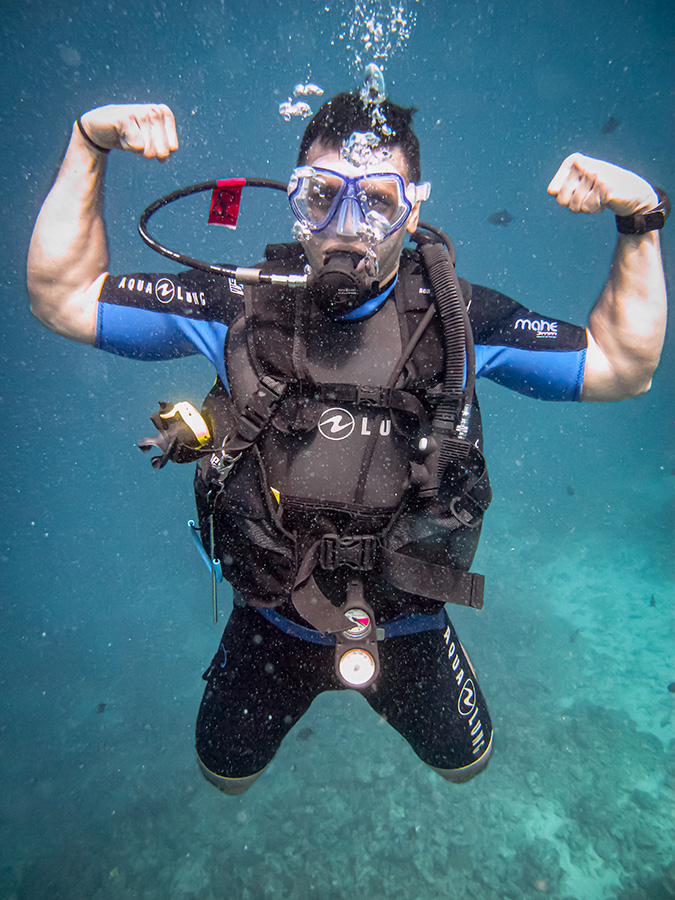 1. It improves your breathing and respiratory system.
1. It improves your breathing and respiratory system.
Scuba diving encourages divers to take long, slow, deep breathes. A calm, slow breathing pattern reduces the risk of a lung-expansion injury while diving. But did you know that it also helps reduce mucus build up?! This breathing pattern has also been known to help with existing conditions, such as asthma. The breathing technique used during diving is similar to that used during some styles of meditation, including yoga. It helps slow down your heart rate, promoting a state of peacefulness. Slow rhythmic breathing can also have a calming effect on your psyche.
2. It increases your fitness levels, strength and flexibility.
Have you heard of resistance training? When you go scuba diving, you’ll be doing that too! Your muscles have to work harder underwater than they would on land due to the increased resistance caused by the water around you. The level of resistance increases significantly when you are swimming against even a mild current. That’s why we recommend scuba diving for Fit India. The more you dive and swim, the more your muscles begin to strengthen. And you’ll also develop endurance as well as flexibility. Scuba diving and swimming doesn’t only give your legs a workout. It can also help build up your core strength, which is important for a good overall posture.
3. It lowers your blood pressure
Remember the first time you went underwater? In all likelihood, you would have experienced a spike in blood pressure. Most divers do, due to the excitement and adrenaline. But this is usually only a temporary increase. Once you have recovered from the initial spike, your heart rate reduces, so does your blood pressure. The slow and deep breathing technique you learn helps lower your blood pressure and keeps you calm throughout the dive.
4. It introduces you to the spectacular marine life underwater
Seeing stunning coral reefs and a fabulous array of fish and critters is enough to put anyone in a good mood. Also, it has been proven that seeing certain colors can affect the brain in many different ways. Scientists believe that being subjected to bright, intense colors, similar to the ones we might find surrounding reefs, can promote feelings of happiness. It can uplift your mood. In addition, the color blue has been known to induce a calming effect on the body.
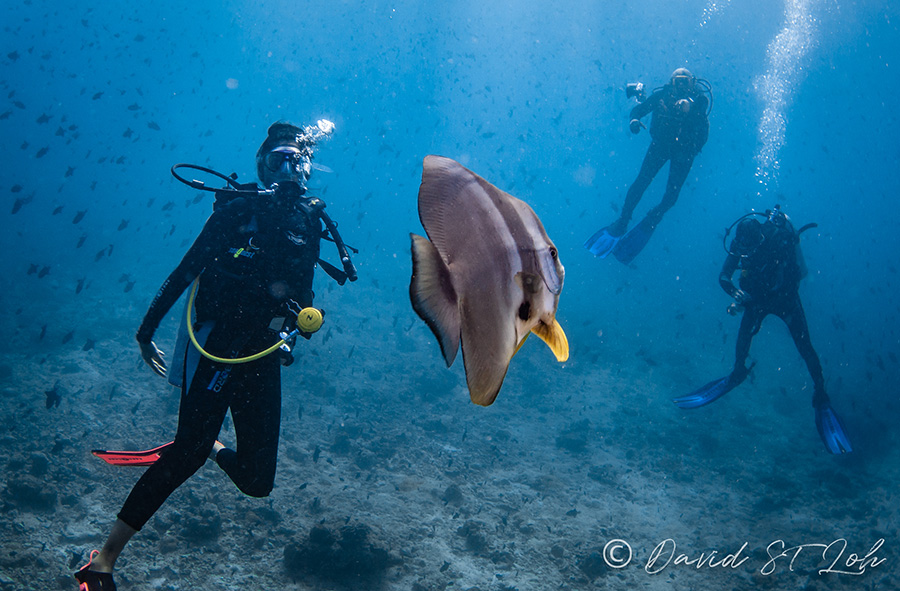 5. It encourages you to travel around the world on an adventure
5. It encourages you to travel around the world on an adventure
Yes, it is possible to dive virtually anywhere on the planet that has a body of water. However, divers tend to travel more than they dive at home. Traveling overseas, exploring and taking time off work, all lead to adventures, excitement and positive experiences. All of which are good for your body, mind and soul. Infinitely much better than being stressed, bored and stuck in a rut, don’t you agree?!
6. It provides you with the healing effects of water
Being underwater has many healing benefits. The likeness to being in the womb is believed to promote feelings of security, well-being and happiness. In addition, being in salt water for long periods of time can cause your body to dehydrate meaning that you tend to drink a lot more after the dive. This in turn means that you are replenishing your cells. You are receiving all the benefits of water both externally and internally.
7. It exposes you to sunlight
Being exposed to sunlight creates vitamin D. Vitamin D helps the absorption of calcium, which in turn keeps bones healthy and strong. Exposure to sunlight also helps increase endorphin production. Now you know why we scuba divers are a happy lot.
8. It has socializing benefits
Diving is a social activity. It involves diving with a buddy. And among divers, we find like-minded people with a common interest. There is a sense of community. A sense of being part of a ‘tribe’ when spending time with other divers. All of which are positive feelings and good for your mental well-being. Did we mention that it also helps lower stress, building confidence and gives you a sense of security and belonging!
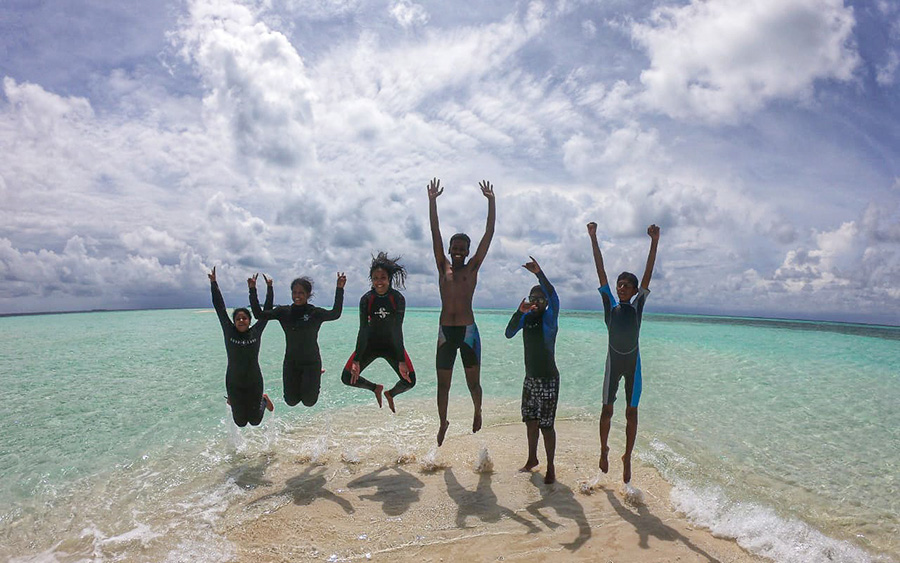 9. It is a great stress reliever
9. It is a great stress reliever
We have mentioned it earlier that the breathing pattern for diving is similar to a meditative breathing pattern. Meditating is a great remedy for stress too. Slower breathing promotes calmness. Not just that, but when we are diving, we are focused on the environment around us which enables us to completely forget work, family, relationships or financial issues. Having this mental ‘time out’ gives the body a chance to rest. It brings the nervous system back to its natural balance. Studies have shown that a relaxed and calm mind promotes a positive mental attitude. It helps you deal with your issues in a calm and rational manner. It reduces feelings of depression.
Corona Virus & Fitness
There are many uncertainties and unknowns surrounding the Corona Virus pandemic. But one thing that is widely believed to be true is that the effects of COVID-19 are generally less severe in a person who is physically healthy and fit. We know, you may not cherish the thought of going to the gym to work on your fitness, but how about going diving instead!
Scuba Diving in India
At Plant Scuba India, we are following recommendations regarding scuba diving health and hygiene standards. We have new procedures in place to ensure that gear is disinfected and all recommendations are being met. If you have tested positive for COVID-19, you will require a doctors medical clearance, as a precautionary measure, prior to participating in any in-water activities. Contact us by email and we can provide you with a form for your doctor to sign.
If you’d like to learn to dive or to join us for fun diving in India, or if you have any questions about scuba diving for Fit India, health and diving, or corona virus and diving, contact us on: holidays@planetscubaindia.com.
We look forward to diving with you soon!
Text: Sarah Ann Wormland, PADI
Photos (in order of appearance): Madhava Reddy, David ST Loh, Gopala Krishnan
Dive gear and scuba courses at 50% off
Planet Scuba India turns 12 this year.
To celebrate, we have announced our Big Anniversary Sale, with up to 50% off on dive gear and scuba courses.
Yes, you heard that right. We have slashed our prices so you can stay safe during Covid-19 by diving with your own scuba equipment. The good news is that scuba diving in India has already begun in a few places. And, it is only a matter of time before you leap into the blue again.
SHOP NOW, PAY LATER FOR DIVE GEAR & SCUBA COURSES
What’s better than getting a 50% discount? Not having to pay the entire amount in one go. Our EMI facility at Planet Scuba India ensures you pay for your already discounted dive gear in installments. We can’t think of a more enticing reason to pick up new scuba gear or sign up for your PADI dive course right now!
Get in touch with us on +91-9686446033 or email us at holidays@planetscubaindia.com for more details on our EMI option.
15% OFF ON PADI COURSES IN INDIA
Learn scuba diving in India. Stay ahead of the curve by finishing the theory sessions of your PADI course, and be the first to jump into the ocean. We are offering 15% discount on:
- PADI Open Water Diver Course (theory and confined water session at Planet Scuba India)
- PADI Enriched Air Diver Course
Fill out our contact form here or drop us an email at holidays@planetscubaindia.com and we will get right back to you. Keep an eye out for our next blog on fun PADI contests and giveaways coming soon.
BIG ANNIVERSARY SALE
New offers on dive equipment from Aqua Lung, Apeks, Omersub and Ocean Technology Systems coming up every 10 days from August 22 – September 30, 2020. Make sure you save this link and check in later if you don’t see the discount on the dive equipment you wish to purchase right now.
August 22-31, 2020
20% OFF ON DIVE GEAR
- Masks, including the Ocean Technology Systems (OTS) full face mask
- Fins
- Booties
- Wetsuits
- Rashguards
- Dive computers
- Select BCDs: Dimension, Zuma, Pro HD, Black Ice
- Select regulators: Mikron, XTX40, XTX50, XTX200
15% OFF ON DIVE GEAR
- Apeks Sidemount sets: XTX50 regulator kit, WSX 25 sidemount harness
September 1-10, 2020
30-50% OFF ON DIVE GEAR
- Select Aqua Lung Legend regulator sets
- Dive pointer sticks
20% OFF ON DIVE GEAR
- Masks
- Dive computers
- Surface Marker Buoys
- Reels
- Reef hooks
- Dive torches
- Dive knives
September 11-20, 2020
30-50% OFF ON DIVE GEAR
- Select Aqua Lung Legend dive bags
20% OFF ON DIVE GEAR
- Fins
- Booties
- Wetsuits
- Rashguards
- BCDs: Zuma, Pro HD
- Regulators: XTX40, XTX50, XTX200
September 21 -30, 2020
LAST IN STOCK OFFER: 30 – 50% OFF
We extended our biggest Anniversary sale ever till September 30, 2020. Now get 50% off on select fins, masks, wetsuits, rashguards, dive computers, regulators and other dive gear.
Download the products list here: PLANET SCUBA INDIA – LAST IN STOCK OFFER
View all products and specifications at Divestock.in
We promise some great deals in the coming days too. Message us on +91-9686446033 for more information or any queries you may have. View or download our dive equipment catalog from the links below:
Aqua Lung & Apeks Catalogue (.pdf)
OTS, Aqua Lung Snorkeling Catalogue (.pdf)
Dive India & Advance Your Scuba Skills
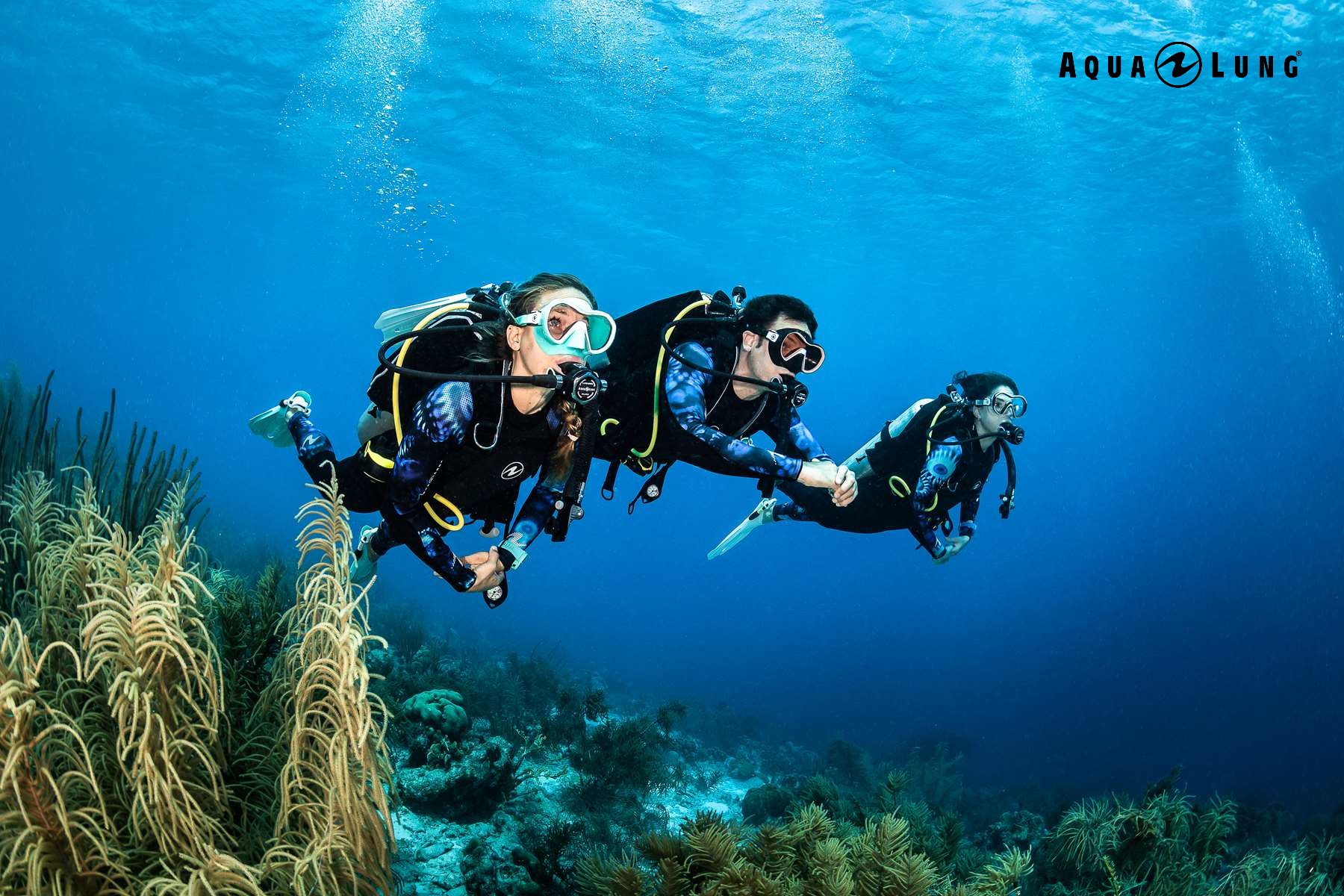
Did you ever dive in India? Are you a certified diver who wants to develop your skills, learn new ones and become a more confident diver? Are you trying to decide between taking a core PADI course or a specialty?
The good news is that as a certified diver you have plenty of options to dive in India. We have a diverse range of sites in our country for you to explore; all while you develop your skills and learn new techniques.
Deciding on which course to take next depends on your current certification level. It also depends on your interests and what you want to get out of the program.
If you are a PADI Open Water Diver, the next course for you is the PADI Advanced Open Water Diver course. This is our recommendation for all Open Water Divers who want to dive India or anywhere else in the world! You’ll make 5 incredible dives with your instructor, including a deep dive and underwater navigation. The other three dives are yours to choose from a wide range of options. In fact, you can start learning most of the courses from home straight away! Get in touch with us to know how.
For those who are already Advanced Open Water certified, the next step is the PADI Rescue Diver Course. Do you want to become a PADI Divemaster or Instructor? Then you’ll need to become a PADI Rescue Diver first. It is a requirement for all pro courses.
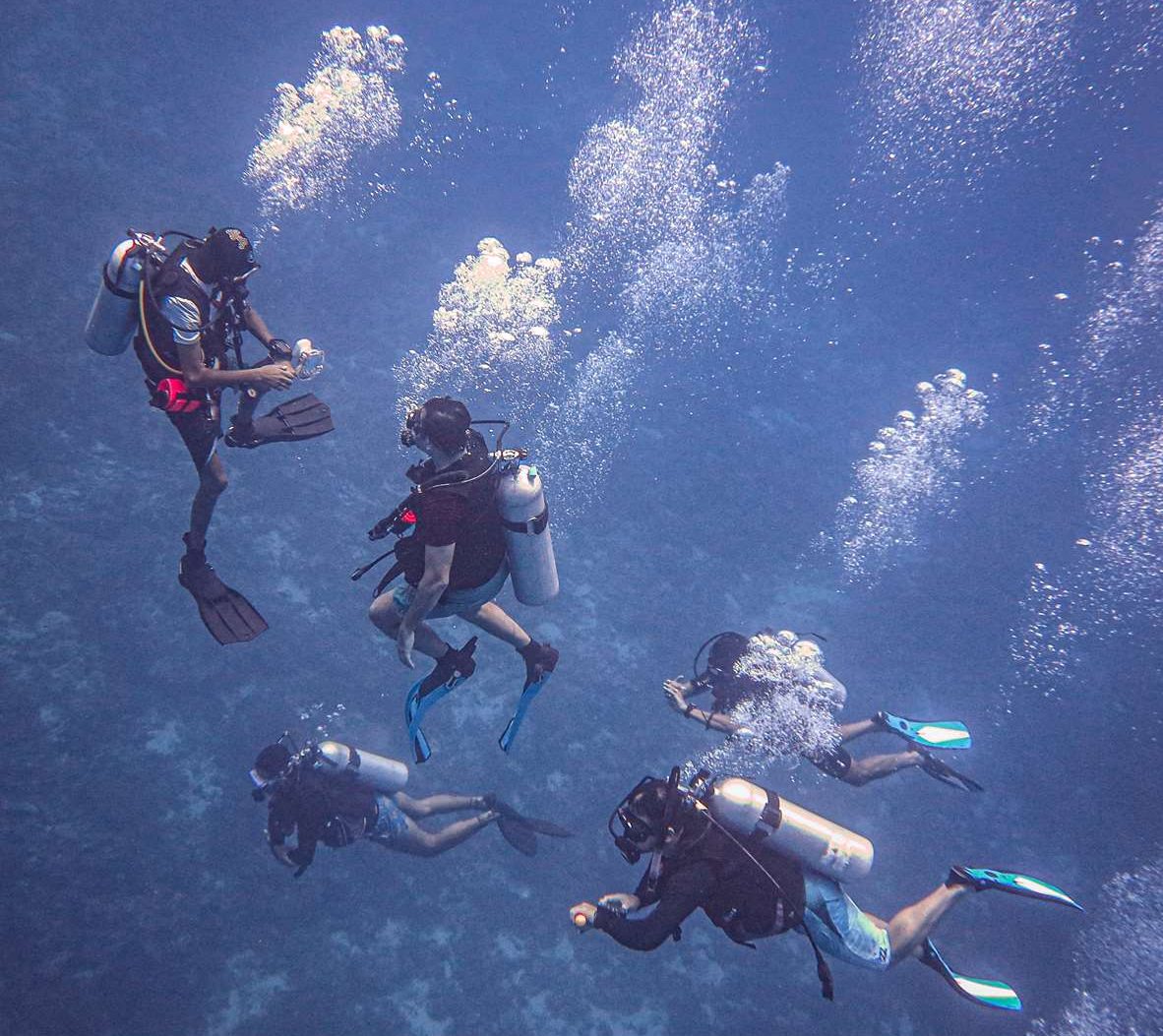
Here are some other programs that might be of interest to you when it comes to developing specific skills…
Reactivate:
With the current Covid-19 situation, in all probability, it has been a while since your last dive. Do you want to recap some of the essential basic underwater skills before moving on? No problem, the PADI reactivate program is specifically designed for this purpose. It will get you back in the water and make you feel confident about your abilities!
Enriched Air Specialty:
It seems so unfair when you have plenty of air left and your computer tells you to shallow up. Ever wished you could stay deeper for longer? Diving with Enriched Air (Nitrox) increases your allowable bottom time. This means you can admire the depths of your favorite dive sites in India, for longer!
Emergency First Response:
This program is a complete CPR and first aid course. It is mostly known by its abbreviation: EFR. The course deals with all aspects of emergency assistance, not just those related to diving. You’ll learn about handling accidents at home and in other daily situations too. Topics covered include CPR, spinal injuries, serious bleeding, choking, shock, splinting… It also includes first aid assessments and many more techniques that can extend a patient’s life. This is a great certification for anyone as it teaches essential lifesaving skills.
PADI Divemaster:
Are you already a PADI Rescue Diver? Thinking of a career in the scuba diving industry in India? Then the PADI Divemaster Course is your first step into professional diving! Unlike other PADI Courses, you’ll be mentored and work alongside your instructor. You’ll gain insight into the workings of the industry and behind-the-scenes at a dive center. You’ll also develop the skills required to assist PADI Instructors with PADI courses. And also learn how to guide certified divers independently.
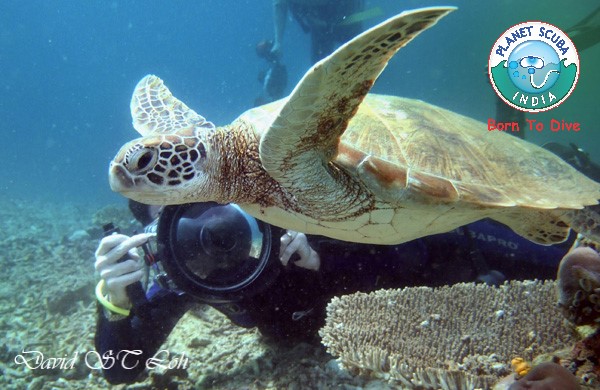
Digital Underwater Photography Specialty:
It’s hard to explain to non-diving family and friends about some of the beautiful life we see underwater. But with amazing images, you don’t need to! Master the techniques required to produce sharper and more colorful images which will impress your buddies and land-loving friends! The best part is that you don’t have to travel too far to get fabulous photographs. There are many sites that you can dive in India too for some amazing clicks and memories.
Other PADI Specialties:
Is there a particular type of diving you want to learn more about? We also offer a full range of PADI Specialty Courses. These allow you to learn more and develop knowledge in specific aspects of diving. Here’s the list of additional PADI specialty courses: Boat Diver. Deep Diver. Drift Driver. Night Diver. Peak Performance Buoyancy. Search & Recovery Diver. Underwater Naturalist. Underwater Navigation. Wreck Diver.
Are you feeling inspired to take your diving to the next level? For more information, send us a message through our online contact form. Or you can email us at: holidays@planetscubaindia.com and we will get right back to you!
By Sarah Wormald, PADI
9 ways to responsibly scuba dive in India
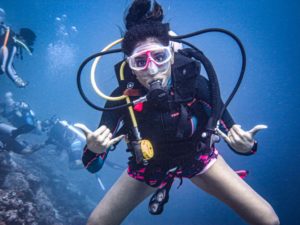
Being a responsible scuba diver is important wherever you are diving. But it’s even more so in India because of our dense population. The great news about being a responsible scuba diver is that it has a major feel-good factor, and together we can make a difference and raise awareness – all of which leads to healthier dive sites and the ongoing development of scuba diving in India. Here are some tips to responsibly scuba dive in India, how they help in your underwater adventure, and how they can help you in your daily life too!
1. Get certified to scuba dive in India
If you want to scuba dive, get certified! This not only increases your personal safety underwater, it also means you’ll learn about how to dive to limit your impact on the coral reef and marine life. This in turn means that dive sites stay preserved for you and other divers to enjoy, dive after dive. If you are not certified to dive, sign up for the PADI Open Water Diver Course – you can even start learning online from home now! Once you are a certified diver, you’ll be recognized as such by dive centers all around the world. Yes, you will have more places to explore and more buddies to meet and dive with!
2. Don’t touch coral reef or marine life
Did you know that corals are living animals? You need to treat corals with the same respect you would give other creatures. Touching corals can not only lead to nasty stings, but you can actually infect the reef. Contamination from humans can be deadly for coral reefs, and for the fish living there. Hard coral is often covered with a thin layer of live tissue which protects it. When touched by humans, this layer gets damaged. The basic rules of sustainable scuba diving are: (1) don’t touch the corals and (2) don’t take any corals or shells out of the ocean.
3. Be in control of your movements
Having good control underwater comes through proper training and supervised practice. If you are not a certified diver, sign up for a Discover Scuba Diving program. You’ll learn some basic skills to keep you and the reef safe, followed by an amazing dive in the ocean with an instructor. If you want to get certified, take the Open Water Diver Course and commit to learning to scuba dive in India. Want to develop your diving skills further? Why not take the PADI Advanced Open Water Diver course? Being in control of your movements makes you look more accomplished underwater and you’ll also be ensuring the longevity of the reef by not making contact with it. As an ‘in control’ diver, beginners will look up to you and follow your example.
4. Maintain good buoyancy
Divers with good buoyancy control are looked up to wherever they dive. Be a good role model with excellent diving skills, and you’ll gain the respect of your buddies in no time. Good buoyancy control also means that your air will last longer so you can dive for longer. You’ll be able to avoid crashing into a reef or making contact with the bottom. Also, you’ll also be able to maneuver better, which means you can get closer to the marine life and corals. You’ll reduce your stress and anxiety levels in the process as well. Say hello to more relaxing and comfortable dives.
5. Invest in the right equipment
Scuba diving in India is still a relatively new activity. There’s yet an element of ‘cool-ness’ attached to it. You have to have the right equipment if you want to look and feel great underwater. And it has to fit correctly! Over-sized gear or a too-snug fit are both uncomfortable and unsafe. Ask us about which scuba diving equipment you should have and how it should fit for the best performance. If your gear isn’t the right size for you, you’ll struggle with buoyancy and are more likely to damage the reef, since your focus remains on your gear and not on your surroundings. All your scuba gear needs to be tucked away. Nothing should be trailing or dangling, as it can cause to damage to the reef or even lead to entanglement.
6. Don’t pollute the water
For the sake of both land and marine species, it is increasingly important today to be responsible and try your best to reduce your environmental footprint. Never throw trash, even organic, in the ocean. Pick up any trash you see while diving, and others will follow your example. Role model good behavior at home too. Try to reduce your use of plastic by using eco-bags for your shopping and think twice about buying items that are overly packaged. In India, we generate a huge amount of plastic waste. Be a trailblazer and get active on social media about what you are doing to reduce your own plastic consumption.
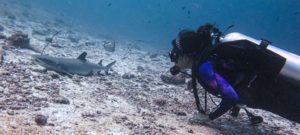
7. Educate yourself and others
The more people know about something, the greater their interest in protecting it. Learn about corals and marine life and share your findings with others. Not only will you impress them with your knowledge, but you’ll also help create a new generation of educated Indian scuba divers who, like you, want to protect our amazing underwater world.
8. Be an ocean advocate
Being a scuba diver is not just about what we do when we are diving in India. It’s about our behavior at home too. Be a diver everyday by becoming aware of global issues such as climate change and overfishing. Join online conservation groups and be a leading voice on social media. We all know the power of people, so help start a wave of awareness and change!
9. Promote scuba diving in India
Share you underwater pictures and talk with your friends, family and neighbors about your adventures and experiences when scuba diving in India. The more Indian divers there are, the more powerful our collective voice becomes.
Are you ready to put these points into action? Get started by booking a PADI scuba diving course, or your next dives now! Contact us via our online contact form or send us an email to: holidays@planetscubaindia.com
— BY SARAH WORMALD, PADI
Scuba diving in India | Myths vs. Facts
Myths that are preventing people from learning scuba diving in India. From fear of shark attacks to having to travel to international waters. We debunk the top five diving myths.
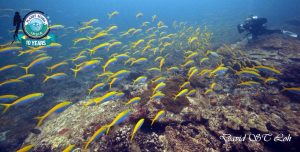
#1: You have to travel to international waters to scuba dive
There are some great sites for scuba diving in India. In fact, for some time now, scuba diving has been available right at your doorstep. For city dwellers, inland dive centers in India are a dream come true. You can complete the theory and confined water sessions of the PADI Open Water Diver Course in your city, over a weekend. (No point being stuck in a classroom on your holiday.) And then head out to the sea to complete your open water dives. Scuba diving in India is available at Goa, Andaman Islands, Lakshadweep, Netrani, Gujarat, Chennai, Pondicherry, Kerala and Kovalam. With new dive centres are opening up in different places across the country.
#2: You need to be an Olympic-level swimmer to scuba dive
You need to have basic swimming skills to learn scuba diving. The PADI Open Water Diver Course needs you to swim 200 meters without stopping. But it’s not a race. There is no time limit. The swim and 10 minutes of floating or treading water is just so that your instructor knows you are comfortable in the water.
Still have apprehensions about scuba diving? Ask your dive center about the PADI Discover Scuba Diving experience, before you take the plunge.
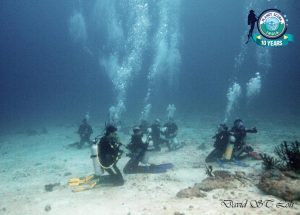
#3: You have to shell out a lot of money for diving gear
While scuba diving is a sport that needs equipment, it doesn’t mean to have to rush out and buy it. Most centers for scuba diving in India and internationally rent out gear. To begin with, you should start with the three basic items: mask, snorkel and fins. Wetsuits are the next on the to-buy list. Start buying gear only once you’re sure you are going to be diving regularly. Besides, renting gear initially will give you a good idea of which brand you should invest in.
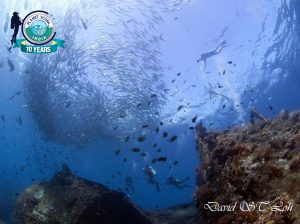
#4: Snorkeling gives you the same experience as scuba diving
We love snorkeling, especially when there are whale sharks or mantas close to the water’s surface. But nothing compares to the immersive experience that scuba diving gives. Why squint at the colorful reef way down below, when you can strap on your diving gear and descend for a closer look. Besides all that swimming on the surface is bound to tire you out. You can stay down much longer and explore more of the ocean when you scuba dive. Think turtles hiding below overhangs. Pygmy seahorses clinging to soft corals. Moray eels peeking out of reefs.
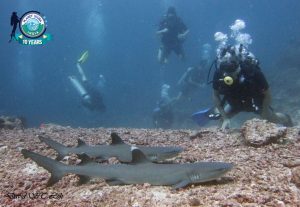
#5: You will get attacked by a shark
The theme song of Jaws hums in the heads of those who have developed a fear of sharks. It is the one of the main reasons why people are apprehensive about scuba diving in India, or anywhere else in the world for that matter. But as most divers will tell you, sharks are the most amazing creatures to see up close. In fact, you should count your lucky stars if you see one during a dive. Sharks are not in the least bit interested in divers. It’s just Bollywood and Hollywood fantastical blockbusters which have given them a bad rep.
